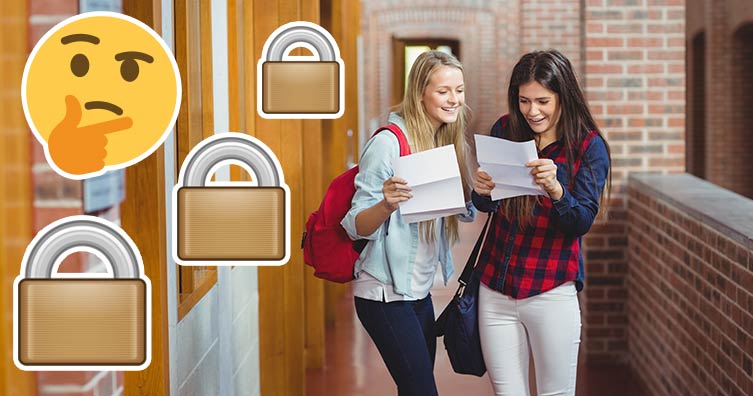It's safe to say: A Level results day 2020 will be like no other. Wondering what you can actually expect on the day? Here's everything we know so far...

Credit: wavebreakmedia – Shutterstock
In a week of huge, short-notice announcements about A Level and SQA results, there's a lot of confusion among students in the UK.
After it was revealed that Higher results in Scotland had seen the pass rate for students from the most deprived backgrounds reduced by 15.2%, compared to a reduction of 6.9% for the most wealthy students, there was, unsurprisingly, a big outcry.
Saying, "I am sorry", Scottish Education Secretary John Swinney announced on 11th August that all downgraded SQA awards would be withdrawn, and students would receive the grades submitted by teachers and lecturers instead.
Despite hopes we might see the same change applied to A Level results, the government has announced a different change. But how helpful will it be, and what are your options moving forwards?
What to expect on A Level results day 2020

Credit: PJjaruwan – Shutterstock
A Level results day 2020 will be on 13th August – a day that seems to have taken a lifetime to arrive.
One of the biggest questions many students will be asking is what they can expect from their results.
When exams were cancelled and the grades were predicted by teachers instead, we knew that the marks would be moderated and adjusted across the country. What we didn't know, was how much by.
It was revealed by the Guardian earlier in August that 39% of A Level grades were expected to be downgraded from the predictions submitted by schools.
But, it's super important to keep in mind that if you don't get the results you're hoping for, it's really not the end of the world (we promise). You've got plenty of options for your next steps, as we'll explain below.
The 'triple lock' process

Credit: Wanchana Phuangwan – Shutterstock
Late in the evening on 11th August, it was reported that the 'triple lock' process will be introduced for students in England getting their A Level results.
This followed the news from earlier in the day that students in Scotland whose results had been downgraded would receive their teachers' predicted grades instead.
In Northern Ireland and Wales, there have not yet been any similar announced changes, but we'll be sure to update this article if there are. And, keep in mind that there are still plenty of options available to you if you're not happy with your results – see here.
A Level students can appeal to get mock exam results
Here's how the triple lock process works:
- On A Level results day, you'll receive the grades that have been moderated by exam boards.
- If you're unhappy with them, and you achieved higher grades in your mock exams, you can ask your school or college to send evidence of your mock result to the exam board. If the appeal's accepted, you would receive the mock result instead.
- As a third option, you will also be able to take your exams in autumn. If the grade is higher than both the moderated one and the one from your mocks, it can become your new grade.
If you're worried about the cost of taking exams in autumn, the good news is that you should hopefully be able to take them for free.
The government has introduced a support package to help schools with the costs of exams – in return they expect schools and colleges to pay the exam fees for students who were supposed to be taking exams in summer 2020.
Will the triple lock process help A Level students?

Credit: fizkes – Shutterstock
Hopefully, the triple lock process will help you if you don't get the grades you had needed for uni, especially if you were happy with your mock results.
The government argues that it will act as a "safety net" for A Level students.
Education Secretary Gavin Williamson said:
Every young person waiting for their results wants to know they have been treated fairly. By ensuring students have the safety net of their mock results, as well as the chance of sitting autumn exams, we are creating a triple lock process to ensure confidence and fairness in the system.
No one wanted to cancel exams – they are the best form of assessment, but the disruption caused by COVID-19 meant they were not possible.
This triple lock system will help provide reassurance to students and ensure they are able to progress with the next stage of their lives.
However, we must admit that we had hoped for much bigger changes, more similar to those made in Scotland which saw 76,000 pupils' grades reversed.
Other student organisations have also expressed concerns with the triple lock process. NUS National President, Larissa Kennedy, said









0 Comments:
Post a Comment